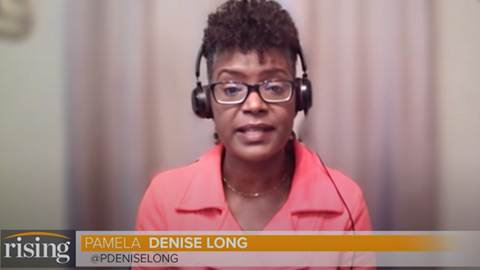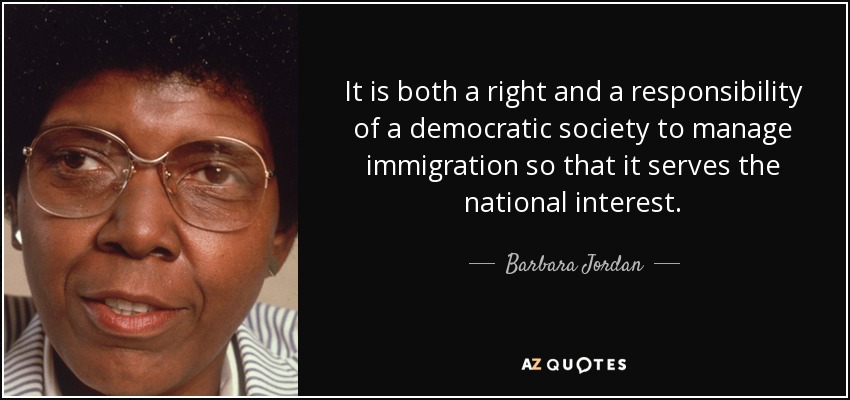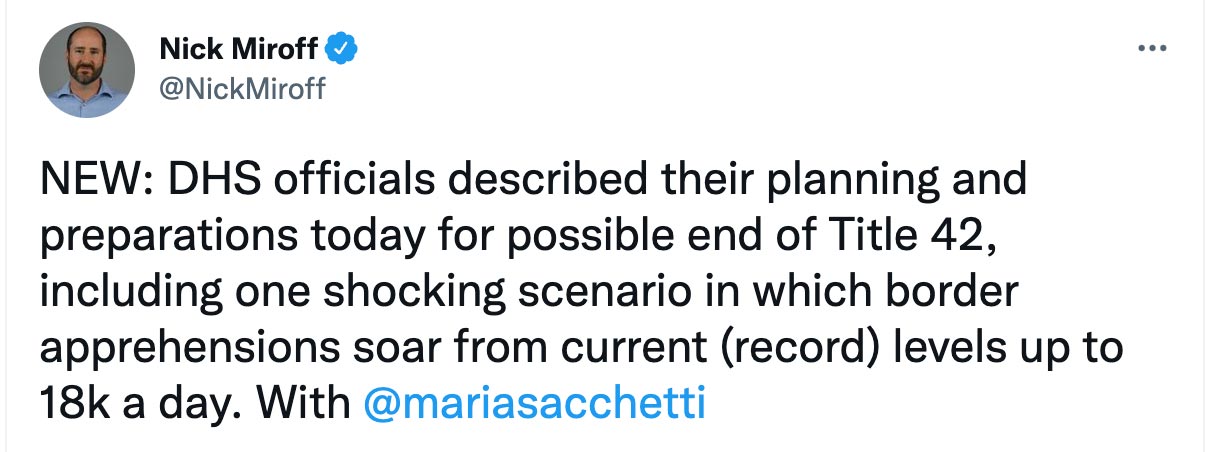As Lisa Venus covers in her blog about President Biden's pledge to resettle 100,000 Ukrainian refugees in the United States, our famous "gumballs" video demonstrates that our immigration policy is not, and can never be, a solution for the millions of displaced people around the world, or for the billions of people living in poverty.
We could triple immigration and grant more than 3 million green cards every year, and not make a dent in the more than 150 million adults who say they would like to resettle in the United States today. We have permitted more illegal immigration of late than at any time since we've kept records, and we haven't made a dent in the billions of global poor.
NBC's Chuck Todd asked the Ukrainian Ambassador to the United States if President Biden's promise to take in 100,000 Ukrainian refugees was enough, and she answered that while she was grateful for the United States "opening the doors for Ukrainians," she noted that there are "more than 3.6 million refugees" already, "mostly women and children, and the majority of them want to go back." Her country's focus, she told Todd, was to end the war and "start rebuilding Ukraine."
The message of the gumball video is that the great majority of people in need around the world must be helped where they reside.
At the same time, we have a responsibility to members of our own national community for whom every policy choice, including immigration, should endeavor to serve.
We are a nation with an economy, not the other way around
The "global citizen" may feel a greater responsibility to people outside their national community than within. For some, welcoming 100,000 refugees is a way of demonstrating one's globalist values in an age of rising populist nationalism. In their view, the nation state is an antiquated notion that should be replaced with what Michael Lind describes as the "postmodern charity state":
...the postmodern charity-state is a country conceived of as a philanthropy or a nonprofit. Its purpose is not to selfishly serve its members, but to help the needy, wherever they might be in the world. If various rights, including positive rights to taxpayer-funded welfare, are universal human rights, not merely perks of membership in a city-state or nation-state, then it makes no sense to limit the spending of treasure or blood to the formal citizens of the charity-state. The country becomes merely the arbitrary headquarters of a global charity"
Lind critiques the selling of American citizenship (i.e. the EB-5 program reauthorized by Congress and the president last month) and word games the media plays "to erase any distinction between legal and illegal immigration" and reduce the very idea of citizenship down to "a matter of paperwork, with no moral or political significance." This, to Lind, is a betrayal of the ancient ideas of citizenship and responsibility:
The republic or commonwealth is like a credit union whose members pool their savings to better help themselves. If the managers of the credit union, out of genuine altruism or social status-seeking, decide to donate the assets of the credit union to this or that noble humanitarian cause, they have betrayed their fiduciary duty to the depositors and looted the institution they were hired to manage."
Pamela Denise Long echoes Lind on Rising, as she describes a government that has failed in its "core responsibility to take care of home":
Long quotes from Sen. Cotton's speech at the Reagan Library last month, when he said "We are a nation with an economy, not an economy with a nation."
In rejecting immigration policies that enrich corporations but make life harder for wage-earning Americans, Cotton sounded a lot like former Senator Jeff Sessions, who, in an article for American Compass, relives his battles against the "Masters of the Universe" during the Gang of Eight push for "comprehensive" immigration increases and amnesty ten years ago.
"Business leaders have useful insights," Sessions writes, "but their agenda is not America's. They serve their stockholders. Our leaders must serve their stockholders, the American people."
From Lind to Long, Long to Cotton, and Cotton to Sessions, all offer variations on the late Barbara Jordan's admonishment:
Meanwhile at the border...
The current record pace of illegal immigration is straining the existing infrastructure, some sectors are "completely overwhelmed," and 40 percent of arrivals are from countries outside of the Northern Triangle. An estimated 62,000 illegal aliens got past the Border Patrol in March alone.
It is about to get much worse:
Without the ability to turn away any migrants using Title 42, the Biden administration will choose to take almost all of them into the country, where Immigration and Customs Enforcement will not have the capacity to detain them. So, almost all of them will be released into the country, either with a promise to appear in an immigration court on a certain date or to check in with a local ICE office when they reach their final destination. Because it is Biden's policy not to try and find any of these migrants unless they commit a violent crime, almost all of them will be allowed to stay in the United States forever."
ICE arrests and removals are way down, and many reports and statistics from 2021 have still not been released, leading some to speculate that the reality is worse than the released numbers would make it appear.
President Obama infamously circumvented Congress on immigration after arguing it would be an abuse of Executive power to do so. Nolan Rappaport says Biden has "gone even further" than Obama by issuing - via DHS Secretary Mayorkas - enforcement guidelines that prevent most immigration enforcement, and cutting bed capacity to make it harder to detain people during a record-breaking surge.
With the administration now preparing for an end to Title 42 and changes to the asylum process, the "asylum iceberg" is up ahead.
Josh Barro observes that Biden has "more or less stopped talking about the border crisis, which is probably the best thing he can do, politically." Unless he were to...stop the border crisis?
The New York Times reports that "Democrats do not want the southwest border to appear out of control in the months ahead of the midterm elections," and several Democratic Senators have asked the administration to rethink ending Title 42.
But the Washington Examiner argues that the bigger problem is that "Title 42 was always a temporary stop-gap," and Democrats appear unwilling to embrace any measure (i.e. the "Remain In Mexico" policy) that would help in the longer term.
Republicans are not entirely on board, either. There are only 39 cosponsors of the Stopping Border Surges Act (H.R. 1901) in the House, and only 7 cosponsors of S. 884 in the Senate. The bill addresses asylum fraud and is one of the 6 Great Immigration Solutions before Congress.
JEREMY BECK is a V.P., Deputy Director for NumbersUSA









